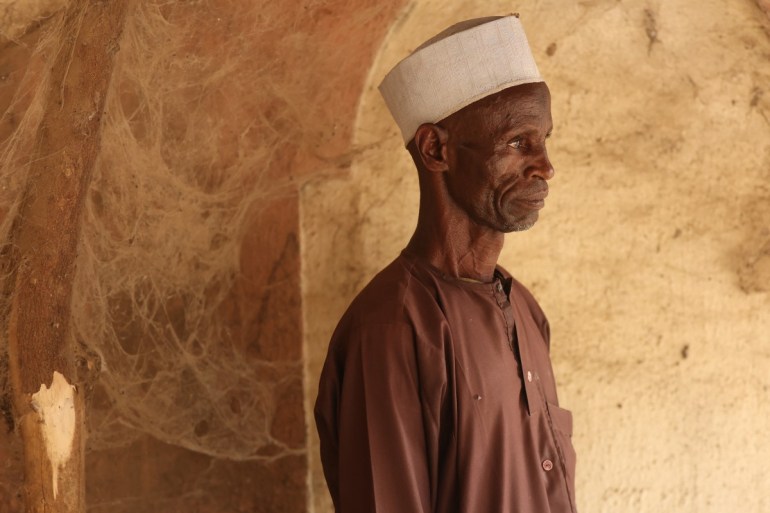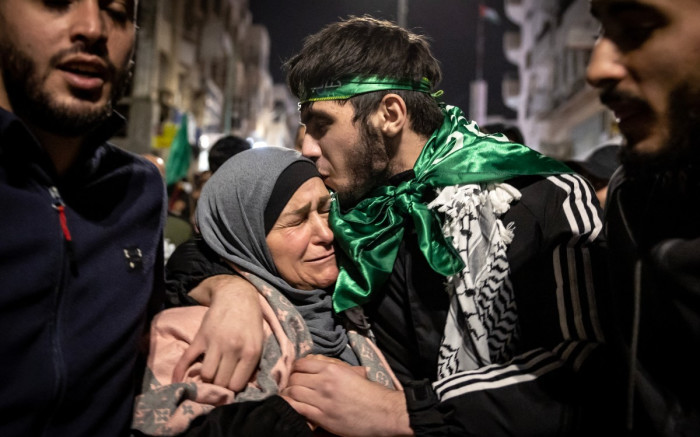Under the midday sun in northern Nigeria, three sisters walk across the border with their babies on their backs on their way to a wedding in Niger.
The 1,600-kilometer (1,000-mile) border has been officially closed since August last year, when West African leaders imposed sanctions on Niger following a military coup that toppled President Mohamed Bazoum.
The closure has taken a heavy toll on both sides.
In Nigeria, it has exacerbated the effects of an economic crisis and exposed already vulnerable communities to a rise in violent crime. The hardship was immense and hit traders particularly hard – but for many the border is still permeable.
The three women, who have family on both sides, passed freely past the post in the town of Jibia, Nigeria, on their way from the northwestern state of Katsina to the village of Dan Issa, Niger.
Authorities tend to turn a blind eye to pedestrians, and drivers have also found other ways to avoid checks.
The women said the 800 naira ($0.50) fee for a motorcycle taxi to their destination was too expensive.
“We can’t afford it, so we decided to hike,” said 30-year-old Saadatu Sani.

Beat twice
Nigeria was once one of Niger’s top trading partners, exporting $193 million worth of goods to Niger in 2022, including electricity, tobacco and cement, according to the United Nations.
Niger’s exports to its neighbor totaled $67.84 million in the same year, including livestock, fruit and refined fuel.
Traders are finding it more difficult to cross the border and they say the closure has had a serious impact.
Truck driver Hamza Lawal said his business had come to a standstill.
He said food had become so expensive that people “can barely eat three meals a day.”
Locals say they are hit by a double disaster: food prices have soared since the border closure and the reforms of Nigeria’s new president have plunged the country into a broader economic crisis.
After taking office last year, President Bola Ahmed Tinubu ended a fuel subsidy and currency controls that led to a tripling of gasoline prices and a rise in the cost of living as the naira devalued against the dollar.
According to the National Bureau of Statistics, the country’s inflation rate reached nearly 30 percent in January.
In Jibia, 100 kg (220 pounds) of millet now costs about 60,000 naira (US$40) – double last year’s price.
Hassan Issa, Doctors Without Borders (MSF) coordinator in Katsina, fears malnutrition rates will reach new highs this year.
With Ramadan starting next month, he fears that families in the predominantly Muslim state will “quickly exhaust their reserves during the holidays and be left with nothing at the start of the year.”

Bribery and banditry
The border closure has also increased insecurity in the region.
Over the years, old tensions between herders and farmers have escalated into a deadly conflict between criminal gangs. Armed “bandit” groups kill, loot and terrorize the population.
They have stepped up their attacks despite Nigerian military operations in the vast Rugu forest, one of their hideouts.
The conflict has forced farmers off their land and bandits are also stealing livestock.
“We and the people of Niger are brothers, we are friends and relatives,” said 67-year-old shepherd Musa Abdullahu.
“They bring these cattle to us to buy them. Since the border is closed, they can’t bring the cattle to us… and the local cattle have all been plundered by these evil people [bandits],” he said.
The economic fallout from the border closure has also led some Nigerians to turn to banditry.
“Poverty can lead to theft and murder… anything for survival,” said Jibia’s traditional leader Sade Rabiu.
But it’s not just bandits that the locals have to contend with.
Philip Ikita, project manager of the NGO Mercy Corps in Katsina, said insecurity had increased since the closure due to the actions of “state security agencies and bandits”.
At checkpoints along the road from Katsina town to Jibia, police, soldiers, local security groups and self-appointed inspectors accept money from road users.
Ikita said officials stopped traders “not really to enforce the law but … to negotiate heavy bribes.”
“The bandits are underground, they cannot come out to the public,” he said. “The people who are supposed to enforce the law and protect us from bandits are the biggest burden on our free trade.”






Recent Comments